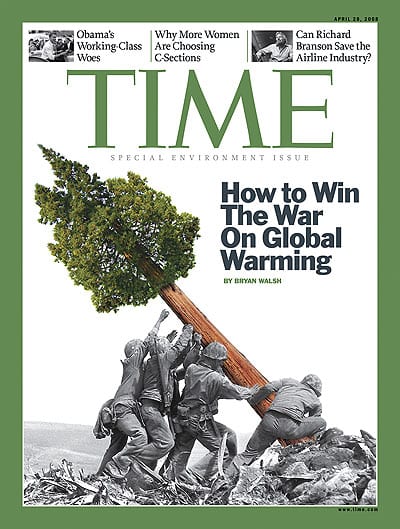There is something in the human psyche that must abhor tranquility. The resilience born of suffering and sacrifice, after all, is not afforded those who languish in prosperity and comfort. Though we are not without significant personal and public challenges, they pale compared to those endured during the Great Depression and the Second World War. And so, bequeathed an inferiority complex, we seem eager to appropriate these terrible experiences for ourselves.
The scale of the threat posed by climatic and environmental changes is just not comparable to an aggressive fascist menace and the collapse of the global economy. Perhaps that’s why advocates for radical environmental policy prescriptions are so eager to borrow from the Greatest Generation’s hardships if only to lend psychological urgency to a cause that is empirically lacking.
“This is kind of like Winston Churchill in 1939,” said Washington Gov. Jay Inslee, who is preparing a presidential bid on a platform consisting primarily of measures that purport to mitigate the threat posed by climate change. Progressive Senator Bernie Sanders seems to agree. “We must look at climate change as if it were a devastating military attack against the United States and the entire planet,” he wrote. California Gov. Jerry Brown noted that it took Franklin Delano Roosevelt years to nudge Americans toward support for Britain over Nazi Germany, and climate change represents an “enemy” that is “devastating in a similar way.”
In response, Tim Blair is succinct: If radical environmentalism is refighting WWII, “Fair enough. Nuking Hiroshima it is, then.”
Progress during the real WWII was much faster though: Marines stormed Iwo Jima in March of 1945, only a few months before finishing off Japan. Original “Progressive” philosopher William James coined the phrase “the moral equivalent of war” to justify lefty power grabs in 1910. Al Gore envisioned the planet’s woes as the equivalent of Kristalnacht in 1989; Time magazine’s imaginary eco-warriors raised a tree on Mount Suribachi in 2008, and still this quagmire of moral equivalency mindlessly rages on.

